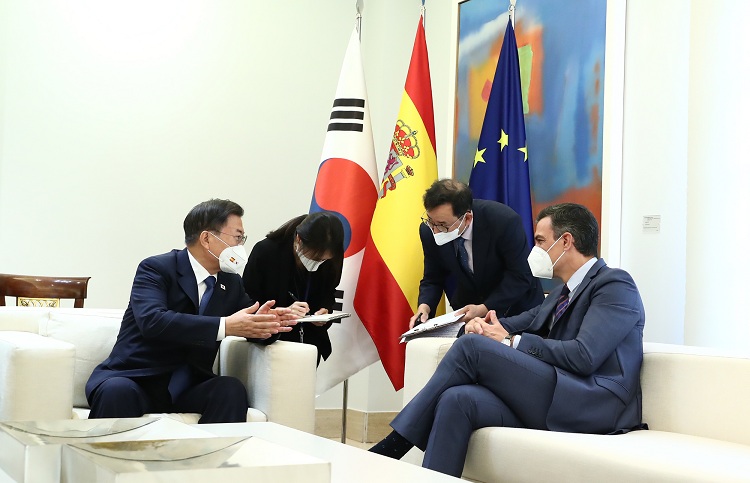The Diplomat
The Council of Ministers authorized this past Monday the manifestation of Spain’s consent to be bound by the bilateral agreement with South Korea on cooperation and mutual assistance in customs matters.
The journey of this agreement began more than ten years ago, specifically in March 2011, when the Customs and Excise Department of the State Agency of Tax Administration proposed, during a visit to Madrid by the Director General of Customs of Korea, the negotiation of an agreement on cooperation and mutual assistance in customs matters between the two countries.
The Agreement between Spain and South Korea on cooperation and mutual assistance in customs matters was signed on June 16, 2021 in Madrid, after authorization by the Council of Ministers on May 4, during the State visit of the President of the Republic of Korea, Moon Jae-in. That visit, the first to Spain since the beginning of the pandemic and the first by a South Korean leader to our country for fourteen years, took place within the framework of the 70th anniversary of the establishment of diplomatic relations between the two countries, which was celebrated in 2020.
According to the Joint Declaration signed that same day by the President of the Government, Pedro Sánchez, and the South Korean head of state, this new agreement “will strengthen relations” between the Spanish and Korean customs authorities “in order to facilitate trade, properly apply customs legislation, prevent and combat customs violations and also ensure the security and proper functioning of the international trade supply chain”.
That visit had a strong economic character (Korea is the fourth largest economy in Asia and the eleventh largest in the world), especially oriented to the recovery after COVID-19. Spain and Korea currently have an Agreement for the Promotion and Reciprocal Protection of Investments and a Double Taxation Agreement, both from 1994. Trade relations are structured around the Free Trade Agreement between the EU and South Korea, in force since 2011.
According to the Council of State, the customs agreement with South Korea does not require the authorization of the Parliament for its ratification by the State. However, once consent has been given, and in accordance with the provisions of the Constitution, the Government has decided to send the text to Parliament for information purposes.





